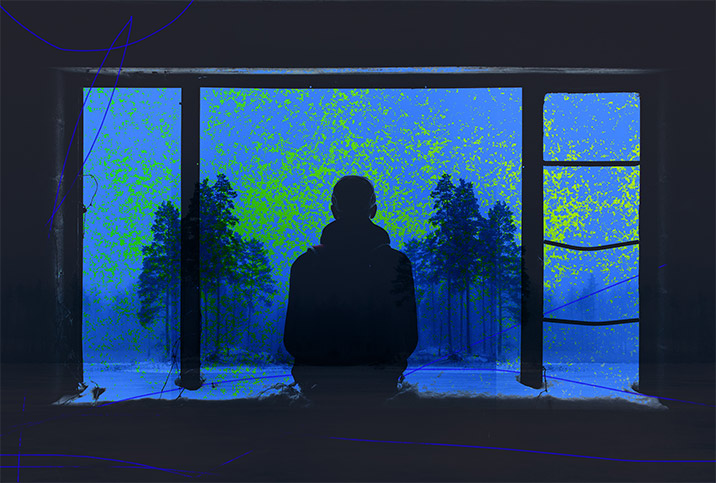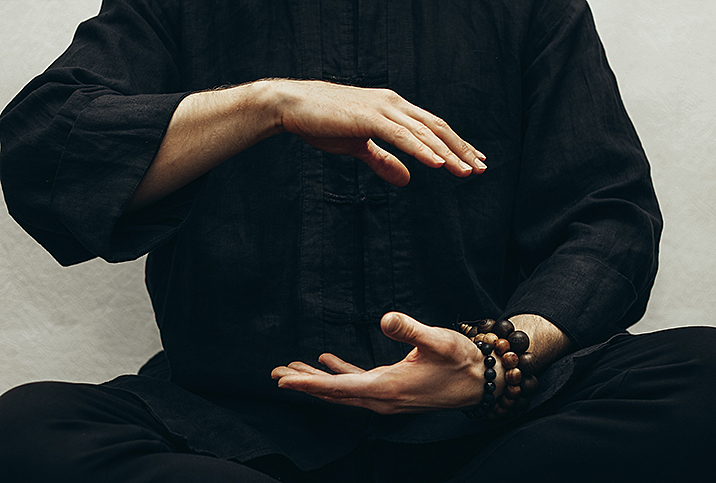Living with Depression and Anxiety

Anyone who has struggled with depression and anxiety can tell you that living with these conditions can make even the smallest daily tasks feel impossible. And while some people only deal with anxiety and depression for limited amounts of time, others may have these mental health conditions over the course of their entire lives.
Statistics show that anxiety and depression are two of the most widespread mental health conditions in America. In fact, the Anxiety and Depression Association of America reports that nearly 40 million people in the U.S.—or about 18 percent of the nation's population—are affected by anxiety orders. And about half of people diagnosed with depression may be diagnosed with an anxiety disorder as well.
Understanding depression and anxiety
While experts are still studying the connection between anxiety disorders and depression, one thing is clear: These conditions share a lot of similarities.
Both anxiety and depression can cause symptoms of anxiety; fatigue or weakness; restlessness; trouble sleeping, thinking or concentrating; and more. Though they have similarities, anxiety and depression are in fact different.
Generalized anxiety is characterized by persistent and frequent feelings of stress, nervousness and fear, often triggered by even minor things throughout the day. Though nearly everyone feels some stress at some point in their lives, people with an anxiety disorder can be more sensitive to stress. For them, the stress that may lead to anxiety is more intense and can occur more consistently, which may interfere with their daily activities.
Common symptoms of anxiety disorders, which result from chemicals released in fight-or-flight response such as adrenaline, include:
- Nervousness or restlessness
- Feelings of panic or fear
- Having a persistent sense of impending danger
- Increased heart rate
- Rapid breathing
- Sweating
- Feeling weak or tired
- Overwhelming worry
- Trouble concentrating or sleeping
- Gastrointestinal problems
Depression, on the other hand, is a mood disorder that causes a persistent feeling of sadness and loss of interest. This disorder leads individuals to lose interest in things they once enjoyed, such as spending time with family and friends, having sex, exercising or doing hobbies. In severe cases, individuals can even lose interest in living altogether—they can suffer from overwhelming feelings of helplessness, guilt at feeling like a burden on their loved ones or wanting the pain they are experiencing to end.
Some of the most common symptoms of depression include:
- Persistent feelings of sadness, emptiness or hopelessness
- Loss of interest in things you usually find enjoyable
- Trouble sleeping or sleeping too much
- Emotional outbursts of anger or irritability
- Anxiety
- A feeling of persistent tiredness and lack of energy
- Restlessness
- Difficulty concentrating, remembering things or thinking
- Feelings of worthlessness or self-loathing or guilt
- Unexplained physical aches and pain
- Thoughts about death, suicidal ideation or attempts at suicide
If you are experiencing any of these symptoms, please reach out to a mental health professional or your general practitioner for help. If you are having suicidal thoughts or behavior, seek emergency help immediately.
The daily and long-term effects
Anxiety and depression often occur in episodes in which symptoms are present for most of the day, nearly every day, for an extended period of time. For some people, these episodes may last just weeks, but for others, episodes may extend for months or even years.
Day to day, anxiety and depression may interfere with work, relationships and other parts of your life as symptoms prevent you from carrying on with your daily life as you normally would.
Anxiety and depression have also been known to lead to alcohol and drug abuse, which can ultimately worsen the symptoms of both disorders.
Over time, anxiety and depression may begin to interfere with your intimate relationships as well. Certain medications used to treat anxiety and depression may cause sexual side effects, including reduced sexual desire, difficulty orgasming and problems achieving or maintaining an erection.
If you experience any of these side effects as a result of your medication, talk with your doctor. Often, adjusting your dose or switching to an alternative medication can greatly improve sexual side effects. That said, don't jump the gun right away: According to the Mayo Clinic, sexual side effects often go away on their own after individuals have been on the medication for several weeks and their body has adjusted. If side effects persist, however, it might be time for your doctor to reassess your dose and medication.
Coping with anxiety and depression
There are no quick, one-size-fits-all solutions to curing anxiety and depression. Effective treatment options, such as talk therapy and medication, are available. That said, successful treatment usually takes time and doesn't work overnight.
Coming up with strategies to cope with anxiety and depression can be greatly beneficial regardless of the treatment path you take.
According to the Mayo Clinic, most people do need therapy or medication to get anxiety disorders and depression under control. In addition, some lifestyle changes may be a great help in managing symptoms.
Some of these lifestyle changes include:
- Exercising regularly: Setting aside a few minutes a day to move your body can help release chemicals in your brain that have been shown to naturally reduce stress. Exercise can take the form of running, leisurely walks, yoga, hiking, dancing—really anything that gets your blood pumping. When you can, get outside in the sunshine and fresh air.
- Developing stress-management techniques: Relaxation techniques such as meditation and yoga can help you to relax your mind and body when you're feeling stressed.
- Getting a good night's rest: Keeping a healthy sleep schedule and good sleep hygiene are essential to keeping both your mind and body healthy.
- Putting down the vices: Whether it be cigarettes or caffeinated drinks, substances containing nicotine and caffeine have been proven to worsen symptoms of anxiety.
- Eating a balanced diet: Nurturing your body with a diversity of foods, such as vegetables, fish, whole grains and fruits, may help alleviate some symptoms of anxiety and depression.
- Avoiding alcohol (which is a depressant) and recreational drugs: Studies have found that alcohol and drugs can trigger depression and anxiety symptoms, and even make them worse.
Maintaining overall health requires you to look after not only your body, but your mind, too. If you are struggling with your mental health, be sure to reach out for help. You don't have to face it alone.


















